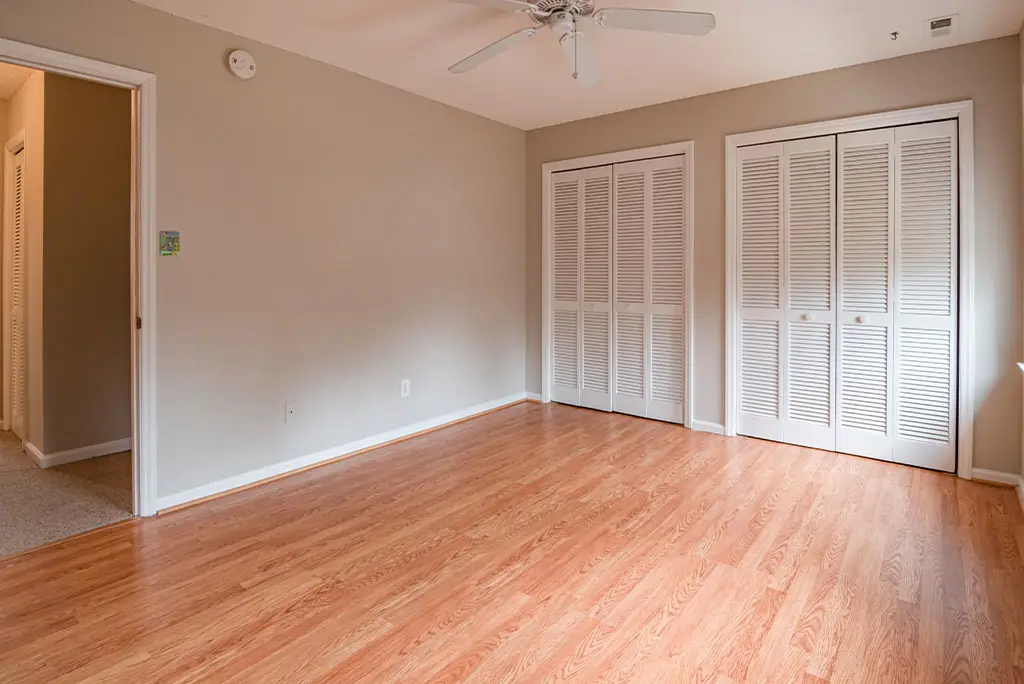If your income is low, you may find it challenging to save money. Therefore, it is necessary to save for unexpected emergencies that may happen in the future. As soon as you get your monthly paycheck, you spend the money quickly on bills you need to pay and for your family’s needs. Moreover, a financial plan is crucial for everyone, regardless of whether your income is low or high. Furthermore, the earlier we start saving money, the better it is for our finances and life. We are giving some ideas on how to save money fast on a low income in this blog. You can read our tips and use them to save money.
Why You Need To Save Money
Firstly, we need to save money to have surplus cash that helps us face emergencies. It makes an emergency fund for the following unexpected expenses:
- Illness or surgery
- Job loss
- Kids’ education
- Home repairs and construction
- Car accidents
- Tax payment
- Funerals
- And other needs
Saving money helps fulfil your short-term and long-term goals for yourself and your family. Additionally, having an abundant money reserve ensures your life security and peace.
Assess Your Financial Situation
First, you’ll need to evaluate the current financial situation. To accomplish this, you have to calculate your net worth. Essentially, this refers to the total amount of money that you possess.
- Firstly, make a list of assets that you own. That includes cash in your bank account and other movable and immovable assets like cars, land, and property.
- Secondly, you need to calculate how much debt you have.
- Next, you need to subtract your debt from your assets. By doing this simple calculation, you get a net worth.
- Calculate the debt and income ratio and determine the monthly debt obligation. The debt may include mortgage, medical bills, credit card payments, rent, education loans, car payments, and other expenses.
- Next, add the payments you must make monthly and divide the total cost by the average monthly income. This is also your credit score, ideally thirty percent or lower.
Calculate Your Income And Expenses

Next, we need to calculate income and expenses. First, you should determine your take-home salary to start budgeting. This, in turn, is the money you have for spending, paying bills, investing, or saving. Add the income from the following sources:
- Social security
- Interest
- Alimony
- Disability
- Other sources
Next, add the expenses on the following bills you need to pay each month.
- Mortgage
- Groceries
- Household expenses
- Buying medicines
- Property tax
- Student loan
- Insurance
- House rent
- Vacations
- Car insurance
- Dining out
- Other expenditures
It is a warning sign for you if your expenses exceed your income. To improve your financial condition, reduce costs and spend less money. It is a good indication if your income is more than the expenses. It means that you have enough money for your future needs and investments.
Check The Areas In Which You Can Reduce Spending
Now, let’s see how we can reduce expenses. Cost cutting involves steps for reducing the money you spend each month. Both homeowners and business owners should learn ways of reducing their monthly costs. Furthermore, you should look at where you are spending your money and identify areas where you can cut costs.
Create A Realistic Budget

To make a realistic budget, aim at the principle of 50/30/20. This means you will spend fifty percent of your income after paying taxes for essential things. You will spend thirty percent on your wants or what you desire, but are unnecessary. On the other hand, you will allocate the remaining twenty percent of your income for saving or paying off your debts.
Reduce Your Monthly Expenses
Maintaining a record of the monthly expenses is essential if you want to budget. To achieve this, write down how much and where you spend money each day in a diary or an Excel sheet. Based on this data, make a budget and stick to it.
Additionally, cut down on your monthly expenses. You can take some of the following measures:
- Cancel unused subscriptions like payments you make for magazines, OTT platforms, or any other online membership you have.
- Moreover, you can use LED bulbs instead of incandescent bulbs.
- Switch off unused lights and fans in your home or office.
- Use the water heater sparingly, especially when it is not needed.
- Fix leakage in the taps of your kitchen and washroom.
Negotiate Cost With The Seller
Use the art of negotiating when you buy something from the market. Request the seller if they can reduce the cost of an item a little. Deal with the seller with a friendly attitude. You may successfully persuade them to sell you at a lower cost rather than at a cost they intended to sell you at.
If, however, the seller is still getting ready to lower their cost, you can take another approach. For instance, you can threaten to cancel the purchase or deal. The seller may bend down a little.
Reduce Discretionary Spending
Lastly, try to get rid of discretionary spending. Discretionary expenses are expenditures without which you can live a life. They are not non-essential expenditures that you can do without. We can also call them wants, the things that are not necessary but what we want. It would be best if you tried cutting down the following discretionary expenses:
- New clothes
- Jewellery or accessories
- Club Membership
- Salon Expenses
- Special beauty treatments
- Entertainment, going to movies
- Buying sports equipment
- Gym membership
- Meals at a restaurant
- Leisure travel
- Hobbies
- Art and craft
- Home Décor
- Other wants
Save Money On Grocery Shopping

Learn some alternative ways to save money on groceries. If your grocery store has the facility of a reward card, use it to buy groceries. Additionally, use the following tips for saving money on groceries.
- Firstly, try to use coupons for buying groceries.
- Secondly, buy groceries from a wholesaler’s store as it costs less than a retail store.
- Before buying groceries, list things you need, and only buy the things on the list.
- Buy when there is a sale.
- In addition, choose generic packs of grocery items.
- Lastly, check the cost of groceries in other stores and buy from where you get a lower price.
Save Money On Transportation Costs

Reduce your travel expenses by being thrifty in your transportation choices. Follow the tips given below to save money on transportation costs.
- Firstly, you can share a car with coworkers to visit the office.
- Share care with friends or neighbors for shopping or taking children to school.
- Secondly, you must try to use public transport like a bus or train instead of a car.
- Buy low-cost car insurance.
- Opt for having only one car instead of multiple cars in the same household.
- Whenever possible, walk or use a bike to go to nearby places.
Get Extra Income
You can look for additional sources of income, like a part-time job that you can do along with a regular job. You can also do freelancing in the extra time you have. Following can be some sources of passive income:
- Firstly, rent out extra rooms in your house.
- Secondly, earn money by doing affiliate marketing.
- Start a YouTube channel and monetize it.
- Start a home-based work or business.
- In addition, you can consider giving tuition to kids at home or online.
- Become an author.
- You can do freelance writing or blogging.
- If you have a talent for art and crafts, you can sell your creations online.
- Lastly, start an online course if you are an expert in a subject.
Sell Off Unwanted Things
Consider selling unused or unwanted items on online shopping stores like eBay or Craigslist and selling the unwanted things in your home.
- If you have a passion for collecting things, consider selling them out.
- Sell old clothes, sweaters, caps, and other things you don’t need anymore.
- Put up old mobile phones and electronic gadgets on sale.
- Sell toys, doll clothes, decoration pieces, and mason jars.
- Put out old furniture like sofa or bed for sale.
Build An Emergency Fund

Give importance to creating an emergency fund for unforeseen expenses. Keeping aside money for your future needs helps you face problems in your life. Open a savings account in your bank. Avoid using money from this account for investments.
Choose a bank that doesn’t charge an annual fee for your account. Keep money for 3-6 months’ expenses in an emergency fund. If you have a family or dependents, you may need to increase the money you keep for emergencies.
Transfer a fixed amount to your emergency fund each month and automate the process. Use the emergency fund only if you face a severe problem in your life and not for everyday expenses.
Choose Low-Cost Housing Options

Our house is the most significant expense for most of us. Many affordable housing options exist, but you must look out for them.
- Take a rented house instead of buying a home.
- You can choose an on-campus hostel or dormitory if you study in a different city or country.
- Consider sharing an apartment with some other people.
- Choose homestay options if you are traveling somewhere.
Save Money On Energy Bills
The monthly energy bills can be very high and cost you a lot. Try to use less power in your home or office and save electricity. To save money on utility bills, follow the tips below.
- Buy energy-efficient appliances with a star rating.
- Use natural sunlight in the daytime instead of using lights.
- Open the curtains and windows to let in fresh air and sunshine.
- Reduce your cooling and heating needs.
- Use less hot water.
- Opt for cold water when washing clothes and dishes in the kitchen.
- Don’t keep the appliances plugged in when you don’t need them.
- Switch off the air conditioner when you are out of your house or traveling.
- Seal your home as it makes it colder in winter.
- Keep the doors and windows closed when the weather is cold.
Give Priority To Needs And Not Wants
Learn to differentiate between your needs and wants. Needs are the non-essential things you don’t need for survival. It includes expenses on your house, food, electricity, clothes, education, travel, medical treatment, internet, and other necessities.
Wants are your desires that may not be essential for your life. It includes expenses on movies, eating out, buying gadgets, online subscriptions, interior decoration, gym, music concerts, and other activities.
Avoid Impulsive Buying
Don’t buy anything impulsively without considering whether you need it or not and prior planning. Make a careful and well-informed buying decision after considering whether you are buying a good deal and if it brings long-term value to your life. Avoid impulse buying chocolates, smartphones, gadgets, cars, and other items. Think carefully and then buy.
Conclusion
Saving money is difficult if your expenses are high and your income is low. However, it is not impossible and needs only a little planning and budgeting. It is not wise to make unplanned and impulsive purchases on things you don’t need urgently or are not essential for survival. Instead, you can save money if you plan well and follow a strict budget. Additionally, having an emergency fund will be a savior if there is a problem in your life. Moreover, it would be best if you tried to make an effort to involve your entire family in your money-saving effort. By following the tips on how to save money fast on a low income given in this blog, we are sure that you will be successful in saving money.
FAQ’s
Q. How to set a saving goal?
To save money effectively, define your saving goal, and set a deadline, a particular date for achieving the goal. Decide the amount of money you will save from your income. By automating the money transfer, you can be stress-free. Automate the money transfers. Additionally, it would be best if you tracked your progress.
Q. How to automate savings?
To simplify saving, use your bank’s facility to transfer money to a savings account automatically. Fix a certain amount to move from the checking account to the account you have made to save money. Moreover, you can transfer money at a specific date to the savings account.
Q. How to restrict online shopping?
Don’t give in to the temptation to order things online. Avoid saving your address and credit card or debit account number in the portal of the e-commerce store. When you insert these details manually, you are less likely to order things. You may only buy things online if you put your details manually.
Q. How much money should you save?
Saving even a small amount of money goes a long way in building up your savings. So, save whatever amount of money you can. Have at least 3-6 months’ expenses in a separate place to access quickly.
Q. How to save money on healthcare?
Ensure you follow preventive health care rather than going to a hospital when you have severe disease. Go for dental checkups at regular intervals. It can help avoid expensive procedures later on. Buy generic medicines and store brand medicines. Avoid buying over-the-counter drugs. Buy medication from a store that sells at a lower cost.

